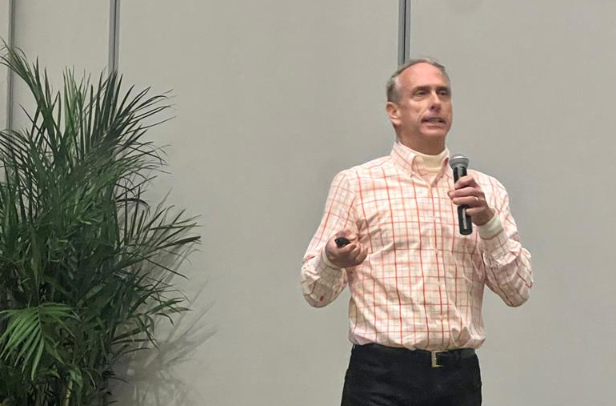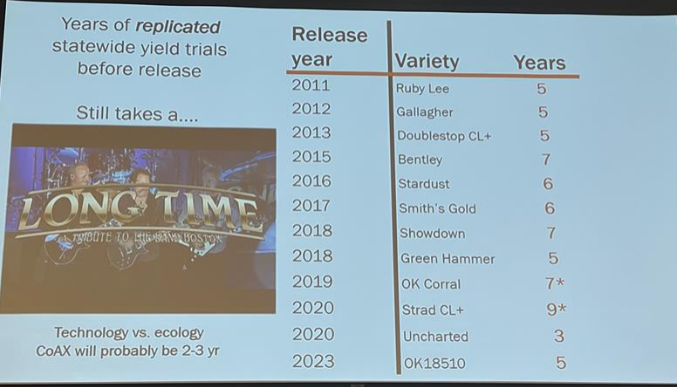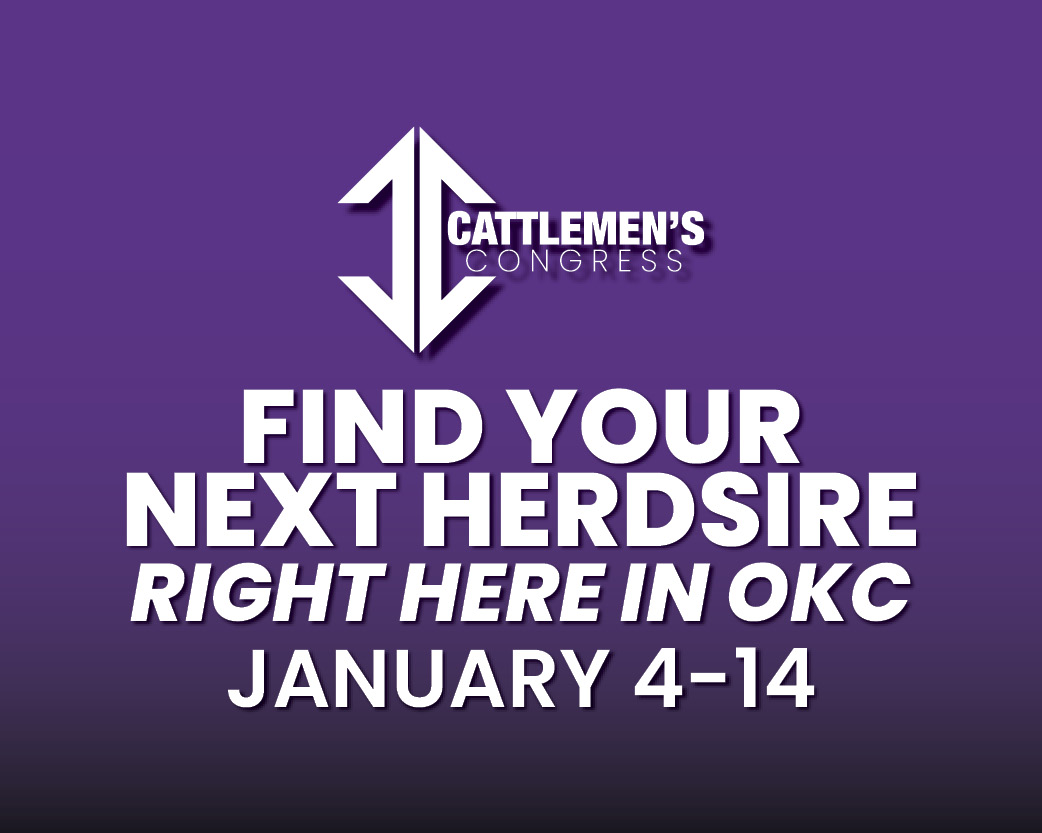
At the OGI Wheat Meeting, Farm Director, KC Sheperd, caught up with OSU’s Dr. Brett Carver about the latest wheat research and tools to aid wheat producers in choosing a variety that sets them up for success.
Dr. Carver leads the OSU Wheat Improvement Team and conducts the wheat breeding and genetics research program. His work in wheat variety development continues a long tradition at OSU that began in the mid-1940s by Dr. A.M. Schlehuber, and continued by Dr. E.L. Smith from 1966 to 1998.
“We are in a good position,” Carver said. “I think, as far as new varieties coming out, whether it is next year or the next ten or 15 years, I think we are in a very good position.”
Yield and quality-wise, Carver said he feels very confident, which has encouraged him to try new things.
Carver also talked about the Oklahoma State University wheat research team working with Oklahoma Foundation Seed on a few projects.
With plant breeding, Carver said it is important to produce a product that can be commercialized and is attractive to growers. That product, he added, must also be pure.
“Foundation Seed doesn’t just increase seed, they don’t just produce foundation seed,” Carver said. “They produce a purer product, and that gives me confidence I can go concentrate on the genetics.”
Regarding some of the experimental varieties being worked on, Carver said he is particularly excited about one they are working on that is close to being announced publicly.

“I think this is going to be something the growers will latch on to, and not just in certain areas of our state,” Carver said. “I think it can go statewide. This is something I think will give Showdown a showdown,” Carver said.
Carver also talked about how working with other universities helps to capitalize on success for all parties involved, while still producing a unique product.
“I can’t have our program look like Kansas State, then we no longer have the diversity in the Great Plains,” Carver said. “We want to capture that diversity, but also capture the success, because I learned this long ago in graduate school- you take the successes of a neighboring breeding program and add them to your own breeding program and now you start to accumulate successes you would not be able to accumulate otherwise.”
One of the talking points Carver touched on during the wheat meeting was providing wheat producers with a variety toolkit to aid them with as much information as possible.
“This is going to be a toolkit that educates our growers so they can make very informed decisions on variety selection,” Carver said. “Maybe it is not an OSU variety that fits what they need. I just want to make sure they have the tools to make that decision. In addition to educating them, I want to be able to market, you know, we want to promote. Promote in a way that is not biased and entirely truthful, but we still have to promote.”
The variety toolkit will be available to producers in April, Carver said, and he is confident it will be a great resource to lead producers in the right direction of what variety best fits their operation.
Carver is hopeful for some more moisture for this year’s wheat crop.
“That is our lifeline in the breeding program,” Carver said. “We depend on that crop and that successful crop in our state to help fund the program, but we want that, and we certainly want our producers to be successful. That is their livelihood. It is all of our livelihoods.”


















